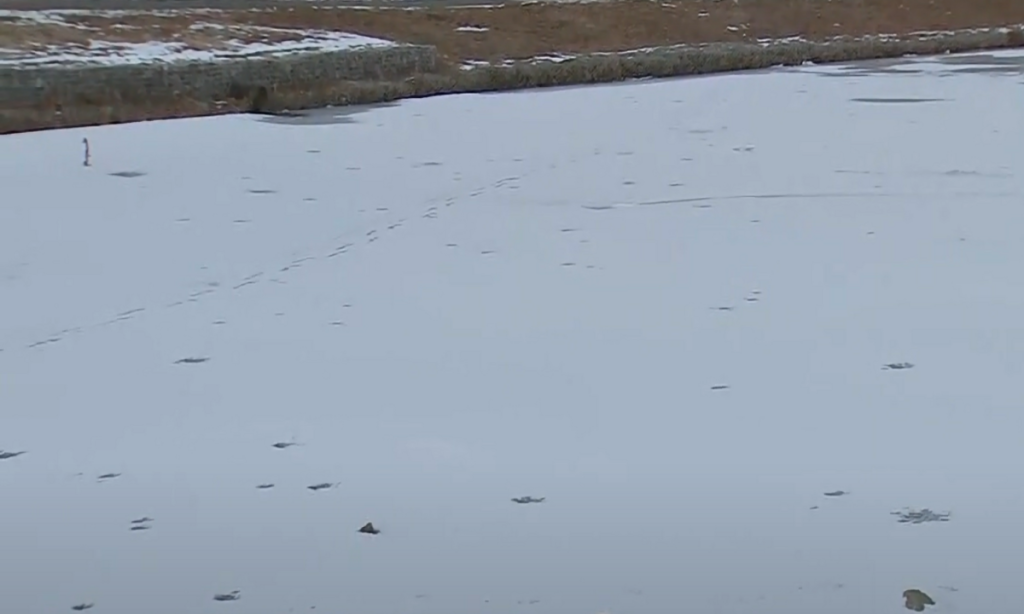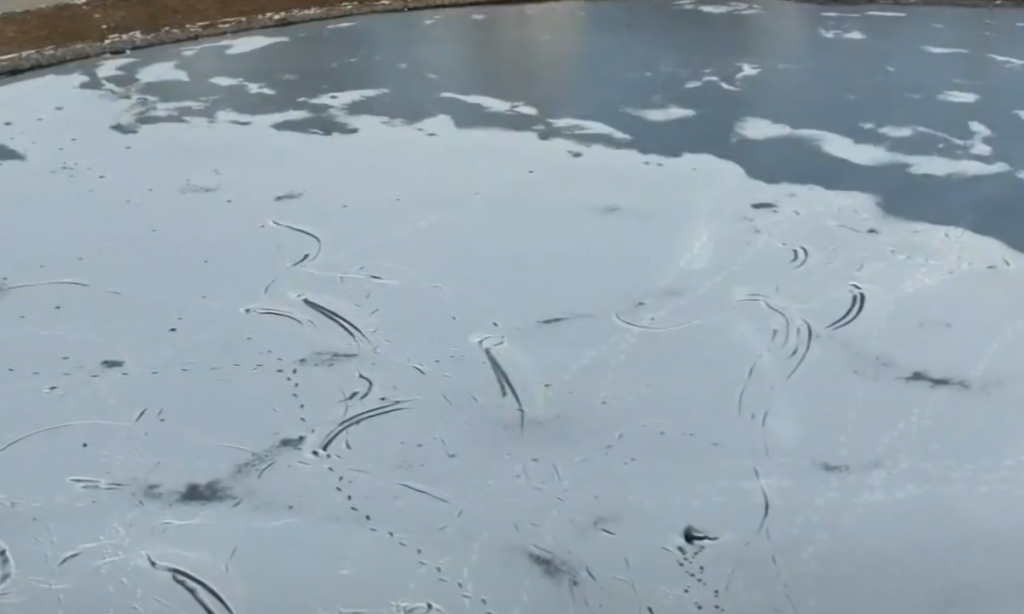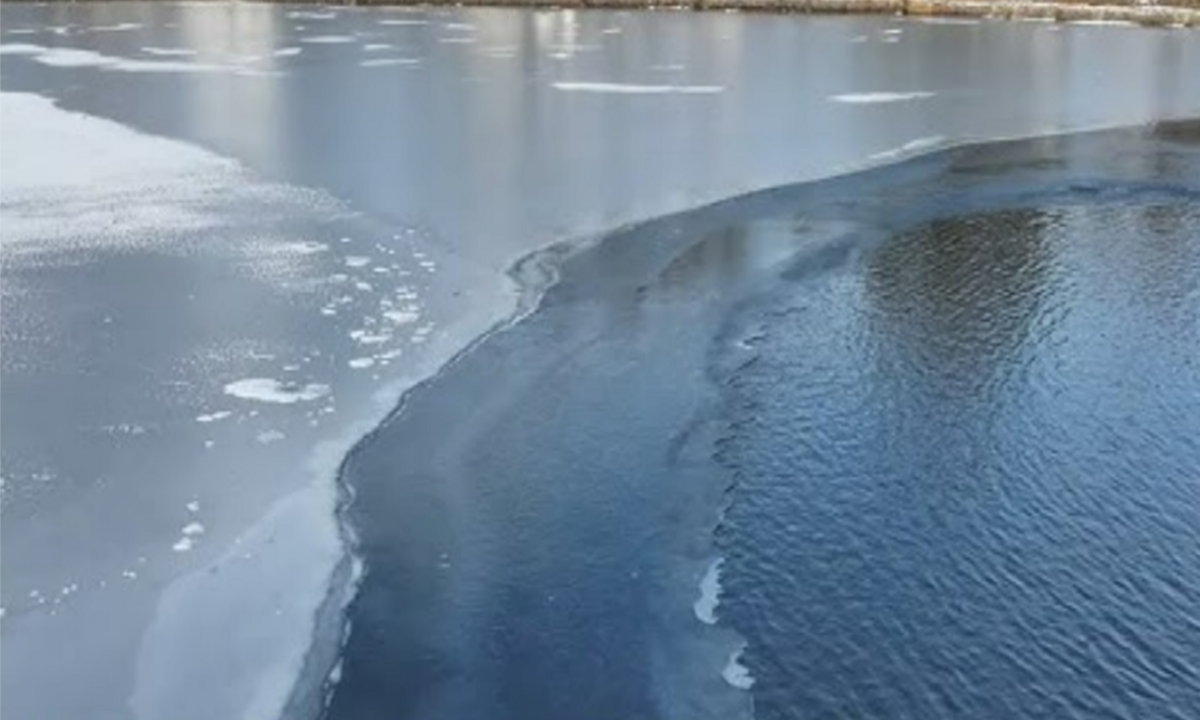First responders in New Jersey are urging residents to stay off ice-covered lakes and ponds, emphasizing that no ice is truly safe. Even with freezing temperatures this winter, changing weather conditions and rising temperatures make ice unstable and dangerous.
Delran Fire Battalion Chief Joseph Cunningham Jr. has been vocal about the risks, explaining how rapidly ice can deteriorate with a combination of sunshine, wind, and fluctuating temperatures. While no ice rescues have occurred this winter, the fire department has been proactive in preparing for emergencies by training technicians for ice rescues.
Why Ice Can Be Dangerous
Chief Cunningham explained that ice, especially when covered in snow or water, can be deceptive. It may look solid, but its thickness and stability are often inconsistent. A few hours of sunlight or rising temperatures can weaken the ice significantly, increasing the risk of it breaking under someone’s weight.
“Even if it looks fine, it’s hard to tell how thick or strong the ice is, especially when it’s covered in snow,” Cunningham said. “Just a bit of sun or wind can quickly degrade it, making it very dangerous.”
At Haddon Lake Park, signs of activity on the ice—footprints, sled marks, and even evidence of an ATV—are clear reminders that many people underestimate the dangers. Officials are strongly advising everyone to avoid walking or playing on frozen lakes and ponds, no matter how solid the ice may appear.

Training for Ice Rescues
To prepare for potential emergencies, the Delran Fire Department recently certified 18 technicians in ice rescue techniques. The training focused on rescuing both victims trapped in the ice and fellow firefighters who might fall through during a rescue attempt.
The two-day training was intense and physically demanding. “It’s a very aggressive training process,” Cunningham said. “It takes a lot of strength to get out there across the ice, even in protective gear.”
This winter presented an opportunity for such training, as the temperatures were cold enough to create conditions suitable for realistic practice—something the department had been unable to do in recent years.
Despite wearing protective gear, firefighters still felt the chill of the icy water during training. Cunningham noted how much worse it would be for the average person who fell through the ice without any protection.
“Even for us, it’s a challenge,” Cunningham said. “For someone without gear, the shock of falling into freezing water is immediate and can be life-threatening.”
How to Respond to an Ice Emergency
If someone falls through the ice, Cunningham advises against attempting a rescue yourself, as it can put more people in danger. Instead, call 911 immediately and try to keep the victim talking to help them stay conscious and focused.
“The initial shock of falling into icy water plays a major role,” Cunningham said. “Encourage the person to keep fighting their way out of the water while help is on the way.”
He emphasized that keeping the person calm and engaged can make a significant difference while waiting for first responders.

Preventative Measures Taken by Local Authorities
In Delran, entrances to areas like Lonnie Lake, where the fire department conducted its training, have been secured to prevent people from venturing onto the ice. These measures are meant to ensure safety and reduce the chances of accidents.
Despite these precautions, many still take risks by walking or playing on frozen lakes. The footprints and marks seen at Haddon Lake Park are a reminder of how quickly things can go wrong, even when the ice seems sturdy.
The Importance of Staying Off Ice
Cunningham’s message is clear: no ice is truly safe, regardless of how cold it has been. The combination of rising temperatures, sunshine, and wind can weaken ice in unpredictable ways. Falling through icy water not only poses immediate risks but can also lead to hypothermia if rescue efforts are delayed.
“Imagine how cold the water is for us in our gear,” Cunningham said. “Now think about what someone without protection would go through if they fell in. It’s not worth the risk.”
Conclusion
New Jersey’s first responders are working hard to prepare for potential ice emergencies, but their main goal is to prevent accidents before they happen. By raising awareness about the dangers of frozen lakes and ponds, they hope to keep residents safe and avoid unnecessary tragedies.
The message is simple: stay off the ice, no matter how tempting it might be. Safety should always come first.
Disclaimer—Our team has checked this article to ensure its accuracy and eliminate any misinformation. We are committed to providing clear and reliable information for our readers.




